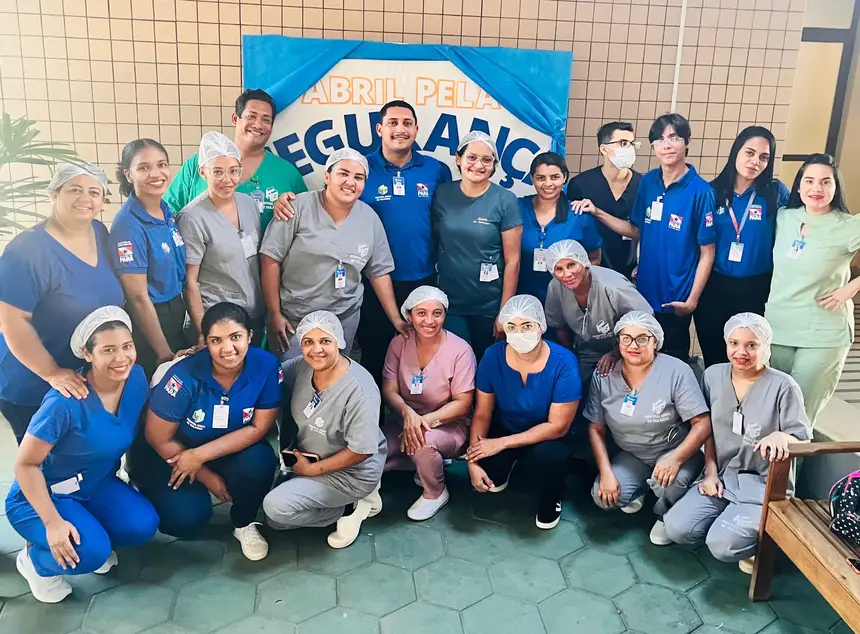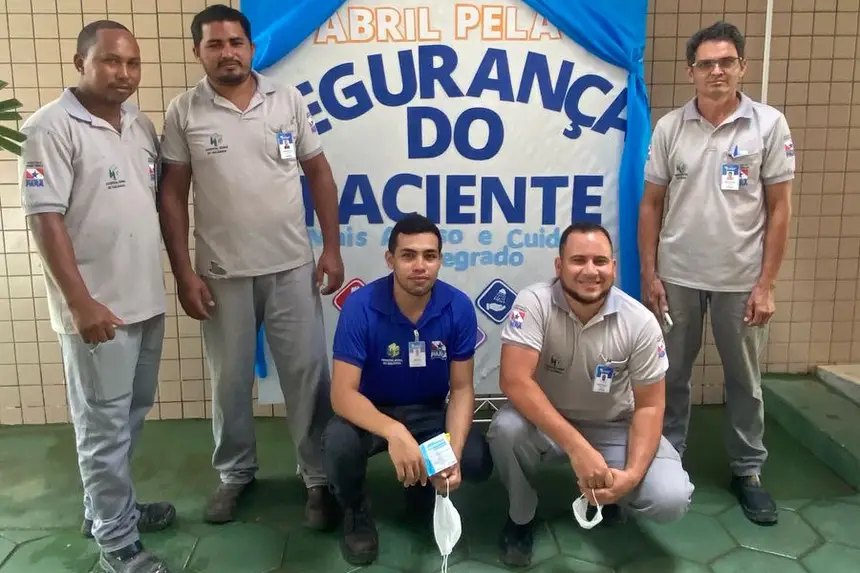HGT reinforces safe practices in hospital care for its users
The activities are organized in accordance with the guidelines established by the international patient safety goals

The management of the General Hospital of Tailândia (HGT), through the Patient Quality and Safety Center (NQSP), develops actions aimed at risk prevention and ensuring safe assistance to the users of the hospital unit. The activities are organized in accordance with the guidelines established by the international patient safety goals and focus on standardizing conduct, training teams, and monitoring incidents.
One of the main actions promoted by the NQSP is the regular audit of Patient Safety Protocols. This activity aims to assess the compliance of practices adopted in various areas of the hospital with the current institutional and regulatory protocols. Audits are conducted through visits, analysis of medical records, and interviews with healthcare professionals, patients, and companions, allowing for the identification of possible failures in processes and the proposal of improvements.
The NQSP nurse, Marayza Nunes, explains that the sector is composed of two professionals, one nurse and one nursing technician, who conduct internal audits monthly in the various healthcare sectors of HGT.
“During our visits, for example, aspects such as the guidance received by the patient regarding the correct use of the identification bracelet, among other safety measures adopted by the unit, are evaluated. Information is collected directly from patients and analyzed technically. Based on the results obtained, specific actions are defined to correct any failures and improve our care processes.
Approval – The reflections of these practices for patient safety are reflected in the satisfaction of user Milena Nascimento, 23 years old, who highlighted her experience in the hospital unit. “I felt safe since I arrived. The team explained everything properly and guided me through each step of the surgery I was going to have. This definitely made me more at ease to undergo the procedure, and thank God everything went smoothly, everything was fine,” emphasized the patient who lives in the Novo neighborhood in Tailândia.
In light of the user's testimony, Marayza Nunes further explains that the NQSP also conducts monthly training sessions with multidisciplinary teams. These trainings are planned based on the six international patient safety goals and cover topics such as correct patient identification, effective communication, safe medication use, safe surgery, hand hygiene, fall prevention, and pressure injury prevention.
“Our goal is to further reinforce each professional's knowledge and standardize care practices, contributing to the reduction of risks in care,” concluded the nurse.

This week, as part of the NQSP schedule actions, an activity was held with HGT employees focusing on the International Patient Safety Goal No. 4, which deals with safe surgery. During the action, guidelines on care and good practices to be adopted before, during, and after surgical procedures were provided. The activity involved approximately 100 nursing professionals, who also received symbolic mementos at the end of the action.
Another area of focus for the center is the control and analysis of incident notifications related to assistance. Based on these analyses, reports are produced that support decisions of hospital management, guide corrective and preventive actions, and contribute to strengthening the safety culture among professionals.
Structure - The General Hospital of Tailândia has 51 beds and maintains an Intermediate Care Unit (ICU) with nine beds, six for adults and three for pediatrics. Users served by the Unified Health System (SUS) have access to the services offered by HGT through the Municipal Regulation Center, and to emergency services on a walk-in basis or referred by Samu, the Military Fire Brigade, and the Highway Police.









